
Photo combo of Tinubus likely challengers
As the race for the 2027 presidential election shapes up, at least three aspirants with national political clout have announced their intentions to participate in the contest. In this report, PHILIP IBITOYE assesses the political antecedents of these presidential aspirants seeking to challenge President Bola Tinubu.
AS Nigeria edges closer to the 2027 general election, the political field is beginning to shape up. While President Bola Ahmed Tinubu is yet to declare his intentions for a second term, attention is turning to potential challengers seen as capable of mounting a viable bid against him. So far, three names have dominated the conversation: former Vice-President Atiku Abubakar, former Anambra State Governor, Peter Obi, and former Minister of Transportation, Rotimi Amaechi.
All three recently attended the launch of the opposition coalition platform of the African Democratic Congress (ADC). Although Atiku and Amaechi have already left their former parties — the Peoples Democratic Party (PDP) and the All Progressives Congress (APC), respectively — Obi is yet to leave the Labour Party (LP), under whose banner he contested the 2023 presidential election. After a split among opposition parties helped President Tinubu win the 2023 poll with less than 37% of the total vote, the trio of Atiku, Amaechi and Obi are hoping to present a united front in the upcoming election to unseat the incumbent president.
Each opposition leader brings a distinct political history and strategic playbook to the race, shaped by their antecedents, electoral experiences and the alliances they can forge. But with the major opposition PDP facing internal uncertainties, the question is not only who will run, but also from which platform.
Atiku: The veteran coalition builder
Atiku is no stranger to presidential politics. Having contested for the top job six times, the former vice-president has built one of the most enduring political networks in the country. His antecedents trace back to the early 1990s, through his years as vice-president under Olusegun Obasanjo, and into his role as a major stakeholder in the PDP. His first foray into presidential politics was in 1993 when he ran against the acclaimed winner of the June 12, 1993 presidential election, Moshood Kashimawo Olawale (MKO) Abiola, and Babagana Kingibe in the primaries of the Social Democratic Party (SDP). He came third in the first ballot and backed Abiola after being promised the vice-presidential ticket. However, Abiola was later pressured by SDP governors to select Kingibe as his running mate in the June 12 presidential election.
Atiku would not miss out on the vice-presidential ticket six years later, accepting a position as running mate to the PDP presidential candidate, former military head of state General Olusegun Obasanjo, who went on to win the 1999 presidential election. After a rift with Obasanjo, Atiku left the PDP to contest the 2007 presidential election under the defunct Action Congress (AC), but came a distant third to his former party’s candidate, the late Umaru Musa Yar’Adua. The former vice-president went on to contest the next four presidential elections — in 2011, 2015, 2019 and 2023 — cementing his position as a serial contender.
Atiku’s playbook relies heavily on coalition bargaining, elite consensus and the mobilisation of established party structures. His strength lies in courting governors, securing endorsements from influential political blocs, and channelling significant campaign resources into grassroots operations. For example, he defeated the Minister of the Federal Capital Territory (FCT), Nyesom Wike, to clinch the 2023 PDP presidential ticket by winning over party delegates with relative ease.
Yet Atiku’s long career also works against him. Critics have painted him as the embodiment of Nigeria’s old political order, a familiar face whose repeated bids have yielded diminishing returns. Speaking during a media parley in Abuja last week, Wike said the former vice-president’s actions are driven by a desperate ambition to become president. He also threw a personal jibe at his former rival: “If I were his son, I would sit him down and ask: ‘Dad, how can you keep hopping from one party to another at almost 80 years old?’
Allegations of corruption, which Atiku denies, remain a talking point among opponents. His chances in 2027 will depend on whether he can use his old playbook of capturing party structures to win the ADC ticket. If he were to secure it, political observers note that he would need the support of Obi and more southern politicians to win over southern states he lost to his former running mate in 2023.
Obi: The youths’ candidate
Peter Obi’s rise to national prominence was one of the defining stories of the 2023 election. Running under the Labour Party banner, the former Anambra State governor transformed what many saw as a fringe candidacy into a nationwide movement powered by young, urban and diaspora voters. Obi’s antecedents as a governor were defined by fiscal prudence, infrastructure investment and a low-profile, data-driven leadership style. These traits shaped his campaign persona: the principled reformer offering a break from politics as usual.
Obi first rose to national prominence after Atiku picked him as his running mate for the 2019 presidential election. Although the ticket failed, the former Anambra governor stayed in the limelight by courting young people across the country with messages of fiscal responsibility and a paradigm shift from consumption to production. His unsuccessful 2023 presidential bid was built on the same premises.
Obi’s playbook is grassroots in spirit but modern in execution: heavy use of social media, direct engagement with supporters, and a message anchored in integrity and good governance. His challenge remains structural. Political analysts say he needs the deep-rooted machinery required to secure dominance in rural areas and across parts of the North where political loyalty is tied to long-standing patronage networks.
In June, political analyst Ahmed Raji dismissed the potential of the Obidient movement to secure a presidential victory for Obi, arguing that the support base lacks the national structure and political diversity needed to win a general election in Nigeria. “A million votes in one zone or the popularity of a movement cannot make you president in a country as diverse as Nigeria. He needs to cross regions, engage with grassroots voters, and gain widespread acceptability,” Raji said.
The former presidential candidate fell short in the 2023 election largely because he failed to gain traction in the North. Of the 11 states he won, only two were in the North, both in the North Central zone. The LP presidential candidate, however, did not find similar success in the North-East and North-West geopolitical zones. For Obi, 2027 will hinge on whether he can secure the ADC ticket and the support of northern stakeholders such as Atiku and former Kaduna State Governor Nasir El-Rufai to broaden his appeal in a key region, according to political analysts.
Last week, Obi announced he was ready to serve only one term in office if elected president, a move seen as a strategy to win the support of northern stakeholders who expect power to return to the North in 2031. “My vow to serve only one term of four years is a solemn commitment, rooted in my conviction that purposeful, transparent leadership does not require an eternity,” he said, responding to scepticism over his pledge.
Amaechi: The straight talker
Rotimi Amaechi’s political résumé spans over two decades, from Speaker of the Rivers State House of Assembly to Governor and later Minister of Transportation. Known for his forthright style and hands-on management of infrastructure projects, Amaechi has cultivated a reputation as a political manager who understands both the state and federal systems.
Political observers view his likely playbook as blending technocratic competence with strategic alliances, especially in northern battleground states. Amaechi’s experience in the federal cabinet provides him with connections across party lines. However, in Rivers State, long-standing rivalries with political heavyweights like Wike could complicate his base-building.
Amaechi rose to national prominence as part of the G7 governors who opposed the re-election bid of former President Goodluck Jonathan in 2015. Alongside Rabiu Kwankwaso of Kano, Aliyu Wamakko of Sokoto, Babangida Aliyu of Niger, Murtala Nyako of Adamawa, Abdulfatah Ahmed of Kwara, and Sule Lamido of Jigawa, the former Rivers governor was instrumental in helping to defeat Jonathan.
Ten years after helping the APC unseat Jonathan — a former ally — Amaechi left the party, depriving him of many political allies needed to mount a credible presidential challenge in 2027. Since his landslide loss to President Tinubu in the 2023 APC presidential primaries, the former transportation minister has done little to raise his political fortunes, according to political observers.
Nevertheless, Amaechi is forging ahead with a 2027 presidential run. In July, he made a one-term pledge similar to Obi’s. When asked on Channels Television’s Politics Today if he would serve a single term should he become the ADC’s candidate in 2027, he responded: “Of course. I told you. You know that I speak my mind. If I won’t do more than four years, I would say that. If I were to do more than four years, I would say I would do more than four.” Like Obi, the former Rivers governor is hoping that a one-term pledge will help secure crucial northern support for his bid.
Expected candidates
While Atiku, Obi and Amaechi have dominated early conversations, the political landscape is regarded as fluid, with more entrants expected to join the race before 2027. Over the past week, speculation of a possible run has swirled around Jonathan, as some PDP leaders are reportedly attempting to recruit him to challenge the APC. Certain party stakeholders believe the former president is well placed to unseat the incumbent.
PDP National Financial Secretary, Daniel Woyengikuro, recently backed an automatic ticket for Jonathan. “For me, that’s what I firmly stand for — an automatic ticket for him, as it stands now. Because we must salvage both this party and the nation,” he said. The party’s Deputy National Publicity Secretary, Ibrahim Abdullahi, also confirmed moves to convince the former president to run again. He said the PDP is inviting Jonathan “because many Nigerians are also making similar calls to the former president to come back.”
However, the former president, who lost his re-election bid to the late Muhammadu Buhari in 2015, has yet to make his intentions public.
Another potential contender in 2027 who has not commented on his future plans is the 2023 presidential candidate of the New Nigeria People’s Party (NNPP), Rabiu Musa Kwankwaso. The ruling APC is already courting Kwankwaso, who won Kano State in the 2023 election with nearly one million votes, to join its ranks ahead of the 2027 poll. However, the NNPP national leader has yet to decide whether he will back the APC, align with the opposition, or run independently. Some political insiders believe Kwankwaso may decide to contest again to help his NNPP allies in the National Assembly retain their seats.
Similarly, the 2023 LP vice-presidential candidate, Yusuf Datti Baba-Ahmed, has hinted that he may run for president in 2027. Speaking in a recent interview on Prime Time, a programme on Arise Television, Baba-Ahmed said he would consider running for president if his former running mate, Obi, opted not to contest. “If he (Obi) doesn’t, and one other person — I won’t call his name — from the South; if they don’t contest, [then I would consider contesting]. Otherwise, I am not ambitious,” he said. However, Baba-Ahmed, a Northerner, has also said that he believes that the South should produce the next president.
A contest of playbooks
Defeating an incumbent in Nigeria’s political landscape requires more than personal popularity. It demands a cross-regional coalition, access to significant campaign funding and the ability to mobilise voters through both formal party structures and grassroots enthusiasm. A common criticism of the newly formed ADC is its lack of grassroots structures.
In an interview with Sunday Tribune, political analyst Mubarak Jamiu of the Department of Politics and Governance, Kwara State University, said the lack of organisational strength makes it harder for the ADC to build momentum or attract credible defectors ahead of 2027. “The [ADC] lacks the political structure and grassroots presence at the state and local levels that are necessary to challenge an incumbent president,” Jamiu said.
While the road to 2027 remains unpaved, the early manoeuvres of Atiku, Obi, and Amaechi are expected to shape the race. There is a growing consensus that whether the trio competes against each other, forms alliances, or falls victim to party fractures will determine whether President Tinubu faces a genuine contest or a divided opposition unable to match the power of incumbency. (Sunday Tribune)
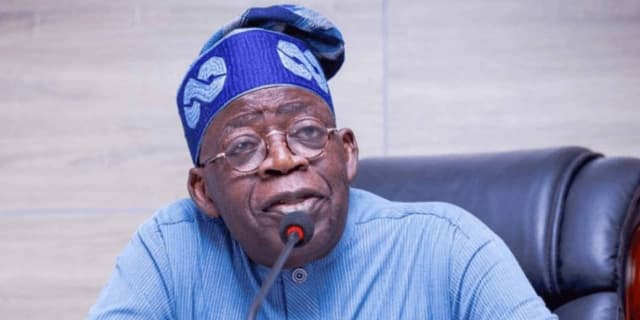


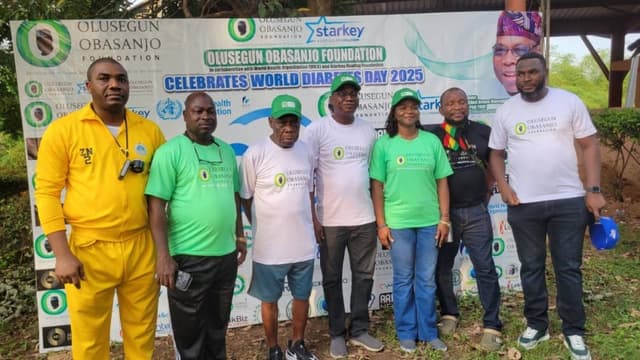





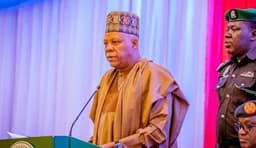
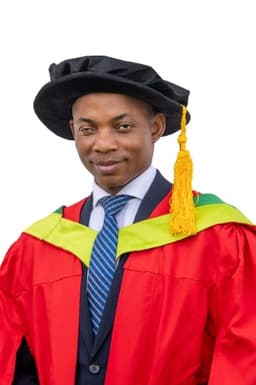
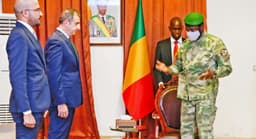















NEWS EXPRESS is Nigeria’s leading online newspaper. Published by Africa’s international award-winning journalist, Mr. Isaac Umunna, NEWS EXPRESS is Nigeria’s first truly professional online daily newspaper. It is published from Lagos, Nigeria’s economic and media hub, and has a provision for occasional special print editions. Thanks to our vast network of sources and dedicated team of professional journalists and contributors spread across Nigeria and overseas, NEWS EXPRESS has become synonymous with newsbreaks and exclusive stories from around the world.